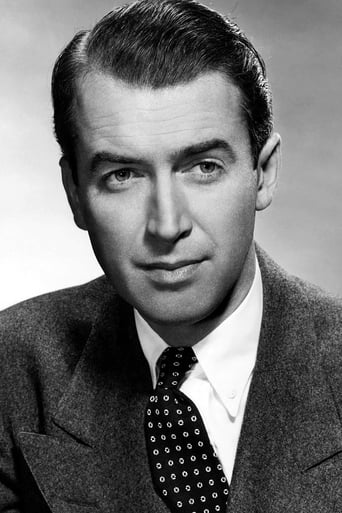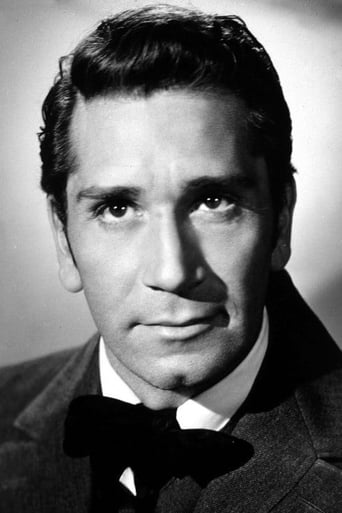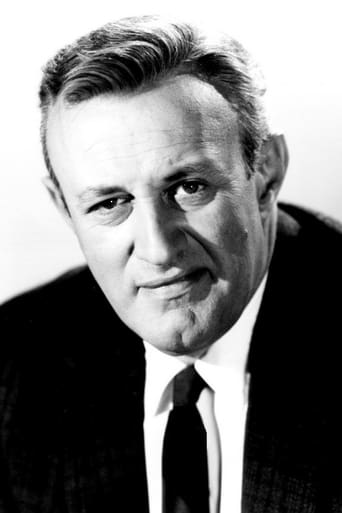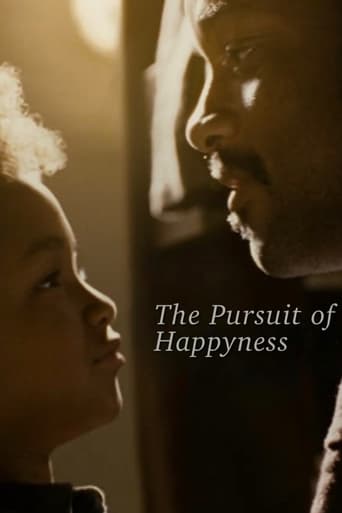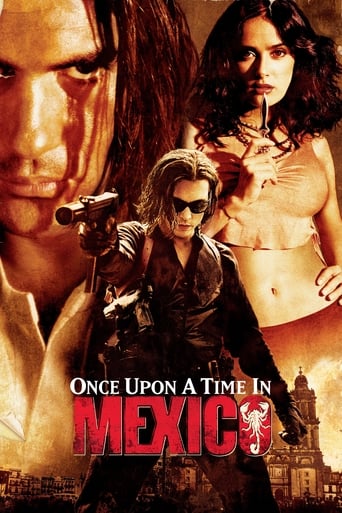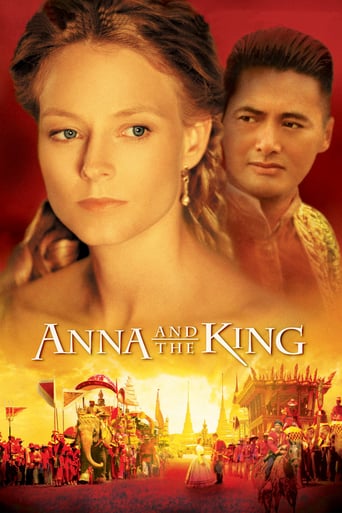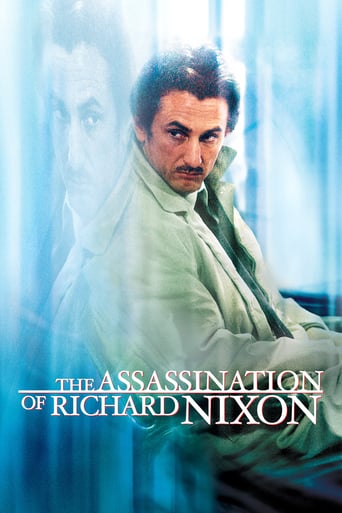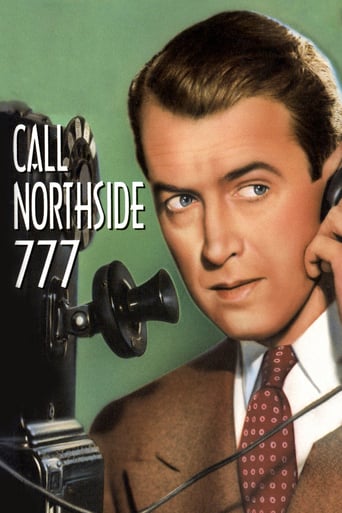
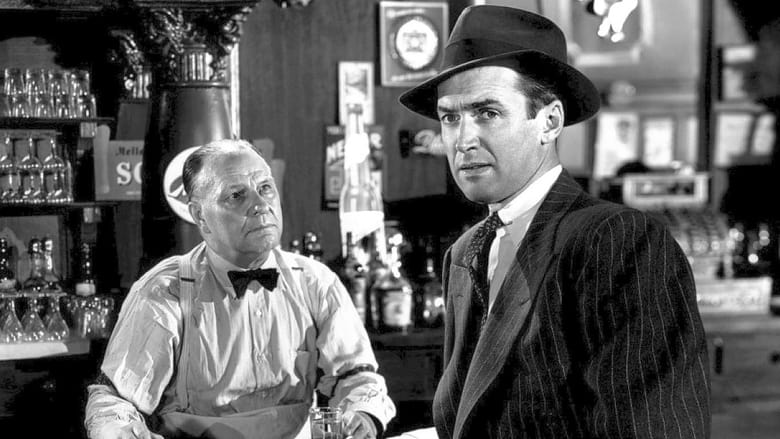
Call Northside 777 (1948)
In 1932, a cop is killed and Frank Wiecek sentenced to life. Eleven years later, a newspaper ad by Frank's mother leads Chicago reporter P.J. O'Neal to look into the case. For some time, O'Neal continues to believe Frank guilty. But when he starts to change his mind, he meets increased resistance from authorities unwilling to be proved wrong.
Watch Trailer
Cast


Similar titles
Reviews
Call Northside 777 is one of those movies that probably created a bit of a row when it was released in the cinemas of Chicago in 1948. It's the type of movie those old enough to remember the 40's and lived in the City with big shoulders would no doubt look upon fondly like many who remember the 80's look at Ferris Bueller's Day Off (1986). It was, after all, the first movie to be shot on location in Chicago and features the iconic Merchandise Mart along the river as well as interiors of the Chicago Times building. As an adopted son of the Windy City, I found the city added a certain je ne sais quoi; a feeling that I can't quite describe yet brought depth to the story.It does help that the story begins with a brief historical narration; first of the Great Chicago Fire of 1871, then Chicago's most dangerous period, prohibition. Thus the plot unravels within that context. A speakeasy owned by a Polish immigrant (Garde) is robbed at gunpoint by two masked men. In the chaos a police officer is killed and days later, two men are arrested claiming innocence. One of them, Frank Wiecek (Conte) cannot recall his whereabouts on the day of the shooting and is sentenced to 99 years in prison. Ten years have passed before reporter P.J. McNeal (Stewart) is assigned to investigate the case further. The reason for the investigation; in desperation Wiecek's mother (Orzazewski) placed an ad for a $5,000 reward for information on the case. She saved that money by scrubbing floors. McNeal is at first reluctant but as he digs deeper he realizes a major injustice has indeed occurred.While categorized as a film noir by some, Call Northside 777 is much less stylized, approaching the subject with the earthy realism of a docudrama. It's a gamble to be sure considering on-location shooting and deconstructed noirs were a new popular innovation. Jules Dassin would use a similar technique in The Naked City (1948) later that year transplanting Chicago with New York City. Hitchcock would then master this delicate balance between realism and true-crime with The Wrong Man (1956) which is a masters course in art imitating true life.Call Northside 777 Is not an absolute masterpiece but it is a superb little gem about intrepid news reporting. James Stewart has always been a reliable source of trustworthiness, idealism and grit thus his character is perfectly on point. The real show-stopper however is Lee J. Cobb whose blustering Chicago Times editor Brian Kelly (based on real editor Karin Walsh) is the balance between practical and cynical that we need to keep the story from falling into abject moral-ism. He's much more subtle then in 12 Angry Men (1957); I'd say Call Northside 777 is edged out only by On the Waterfront (1954) as his best performance.While a little dated, Call Northside 777 is nevertheless an interesting film worthy of a watch or re-watch if you're so inclined. It features a strong true-to-life story about a man falsely convicted of murder and a reporter willing to stake his reputation on the man's innocence. Furthermore it is a story of a city that can be as cruel as it is mighty and majestic. For me, it was a reminder on how much things can change given time; One minute there's a speakeasy on Ashland Ave. the next there's an American Apparel. Or to put it in more salient terms; one minute you're proved guilty, the next you're given a second chance.
According to this film, there were 365 murders in Chicago in 1932, "one for every day of the year". (Actually, someone seems to have forgotten that 1932 was a leap year. Was nobody killed on 29th February?) Presumably people in 1948 were supposed to find that figure particularly appalling, a shocking reminder of just how high the crime rate was in the Bad Old Days of Prohibition, but today it would be a very low one. In 2013 there were 415 murders in Chicago, and this was the lowest figure since the mid-sixties. On several occasions during the seventies, eighties and nineties the annual figure rose to nearly a thousand. "Call Northside 777" tells the story of one of those killings, that of Police Officer William Lundy. Two young Polish-Americans named Joseph Majczek and Theodore Marcinkiewicz were convicted of the crime and sentenced to 99 years in prison, but doubts remained as to their guilt. The film is based on the facts of the case, but the names of the parties involved are changed. The dead officer becomes John Bundy and the two convicted men Frank Wiecek and Tomek Zaleska. In 1944, eleven years after the convictions of Wiecek and Zaleska, the city editor of the Chicago Times notices a classified advertisement in his newspaper offering a $5,000 reward for information about Bundy's killers. He assigns a reporter named Jim McNeal (based on a real journalist named Jim McGuire) to investigate. McNeal discovers that the ad has been placed by Wiecek's elderly mother who believes strongly in her son's innocence. (The ad asks people with information to "call Northside 777" which is her telephone number). McNeal is initially sceptical, believing Wiecek to be guilty, but as he uncovers more evidence he changes his mind, and the paper launches a campaign to prove the innocence of the two men. The police and the state attorney's office, however, are unwilling to admit that a miscarriage of justice has taken place, and try to cover up any evidence which might establish their innocence. The film ends with Wiecek (based on Majczek) triumphantly vindicated but Zaleska (based on Marcinkiewicz) remains in jail, seemingly forgotten. The reason was that by 1948, when the film was made, Majczek had been released from jail but Marcinkiewicz had not as the authorities were not yet satisfied that he had played no part in the murder. (He was eventually cleared of the crime and released in 1950). Although the real-life events upon which the film was based had occurred only a few years before it was made, meaning that most people would have been aware of Majczek's release, director Henry Hathaway nevertheless provides a tense, thriller-style ending in which McNeal, Wiecek's lawyer and the members of the parole board anxiously await the arrival of a key piece of evidence which might prove his innocence. The film is sometimes described as a film noir, but I am not sure that it really belongs in that category. I sometimes think that the genre might more accurately have been called "film gris". The great noirs may have been made using black-and-white photography- Hathaway was later to make "Niagara", one of the very few colour examples- but morally they tended to avoid black-and-white absolutes, painting everything in various shades of grey. In "Call Northside 777" there are plenty of black-and-white absolutes- more film noir-et-blanc than film noir. Wiecek is a noble character unjustly wronged by the system, McNeal is a tireless crusader for justice. Those who seek to impede McNeal's investigations for self-serving reasons are contemptible. Later in his career, particularly in some of the Westerns he made with Anthony Mann in the fifties, James Stewart showed that he was an actor who could deal very well with moral ambiguity and shades of grey, but in the forties he was more associated with straightforward "Mr Nice Guy" characters, and gives a fine performance as the determined and selfless McNeal. Another good contribution comes from Lee J. Cobb as his editor Brian Kelly. "Call Northside 777" is made in a semi-documentary style, closely following the facts of the Majczek and Marcinkiewicz case. It is an efficient mixture of documentary and crime thriller, paving the way for later films based upon real-life miscarriages (or alleged miscarriages) of justice such as "I Want to Live!" and the British-made "Yield to the Night". 7/10
Documentary-style and intriguing film based on facts about an unjustly imprisoned man . Actually, this film was based on a true story. Some elements, especially characters names, were fictionalized out of necessity, such as some central figures to the story were still living at the time of production, and had not given permission for their names to be used . It deals with a hard-boiled Chicago reporter P.J. McNeal (James Stewart) assigned by his publisher (Lee J Cobb) to investigate a strange information . As the cunning reporter finds himself in the crux of an important investigation uncovers new new clues in Wiecek case and unravels police cover-ups and missing evidence pointing to an imprisoned man's innocence . As he ferreted around until he found out the truth about a 12-year-old killing case . The journalist follows up a newspaper as offering 50000 dollars for any information leading to the arrest and conviction of a police killer . MacNeal right up to the ending agonising attempts to prove the innocence of of the inmate sent down for a killing he didn't do . The unjustly imprisoned for 11 years in real life was Joseph Majczek. After being released from prison in 1945, he worked as an insurance agent in Chicago. For his wrongful imprisonment, the State of Illinois awarded him $24,000, which Majczek gave to his mother Tillie. Majczek eventually remarried his wife with whom he had divorced while he was in prisonDocudrama/thriller based on the actual facts about Joe Majczek and the Pulitzer Price winning reporter Jim McGuire who through a deep investigation , found enough evidence to have the case reopened . This is a thrilling picture , as you get completely absorbed in its vision , captivating every step of the way thanks to pacy filmmaking and awesome interpretations . Interesting as well as thought-provoking plot with an incident-filled script by Jerome Cady and Jay Dratler based on articles by James P. McGuire and Jack McPhaul . Very good acting by the great James Stewart as an obstinate journalist who slowly comes to realize that there was a miscarriage of justice . Secondary cast is frankly excellent such as Lee J Cobb , E. G. Marshall , Moroni Olsen , Charles Lane and Helen Walker as wife . First credited film role of John McIntire, who portrayed Sam Faxon and Thelma Ritter's role as the police captain's secretary was mostly deleted from the released print, but she can still briefly be seen and heard in one scene . And film debut of Kasia Orzazewski who portrayed Tillie Wiecek, mother of the second lead character of Frank W. Wiecek. Evocative cinematography in black and white by Joseph MacDonald .This film was photographed in the State of Illinois using wherever possible, the actual locales associated with the story. "Call Northside 777 ¨ (1948) was actually the very first Hollywood produced feature film to be shot entirely on location in Chicago . Many famous landmarks, such as the Chicago Merchandise Mart, Holy Trinity Polish Mission, and the Wrigley Building on North Michigan Avenue, can be seen throughout the film. Emotive as well as atmospheric musical score by the classical Alfred Newman . The motion picture was stunningly directed by Henry Hathaway . Henry was a craftsman who had a long career from the 30s with successful films , and especially Westerns , as ¨Brigham Young¨ and ¨Raw Hide¨ . In his 60s Hathaway still got the vigour to make some fiery movies as ¨From Hell to Texas¨, ¨How the West was won¨, ¨Nevada Smith¨, and ¨Shoot out¨ . Hathaway also directed Noir genre as ¨Kiss of Death¨, ¨The House on 92nd Street¨ , ¨Niagara¨, ¨23 Paces to Baker Street¨ , adventures as ¨The last safari¨ , ¨Prince valiant¨ , ¨White rose¨ , ¨White Witch Doctor¨ and other kind of genres .
This is a flawlessly filmed and directed look at 1948 Chicago. The acting is good....James Stewart playing his usual straight shooter down to earth corny blustery stammering when indignantly angry character.What it lacks is suspense and as another reviewer stated it missed a wonderful scene where the perjuring witness Wanda would be exposed.The denouement involves state of art technology of the time....wired photographs and enlarging techniques.What was needed was a more talented writer to come up with some suspense.It gets a solid 7.RECOMMEND


